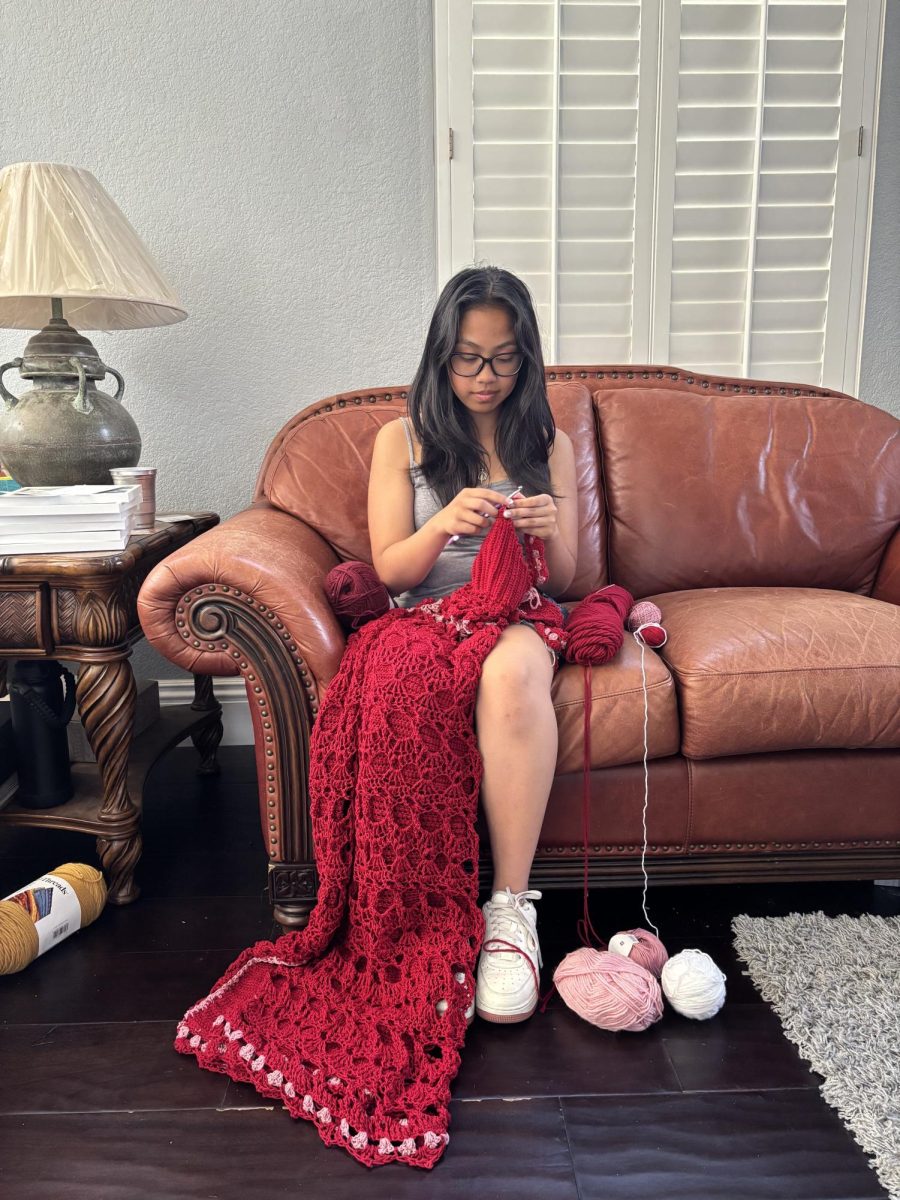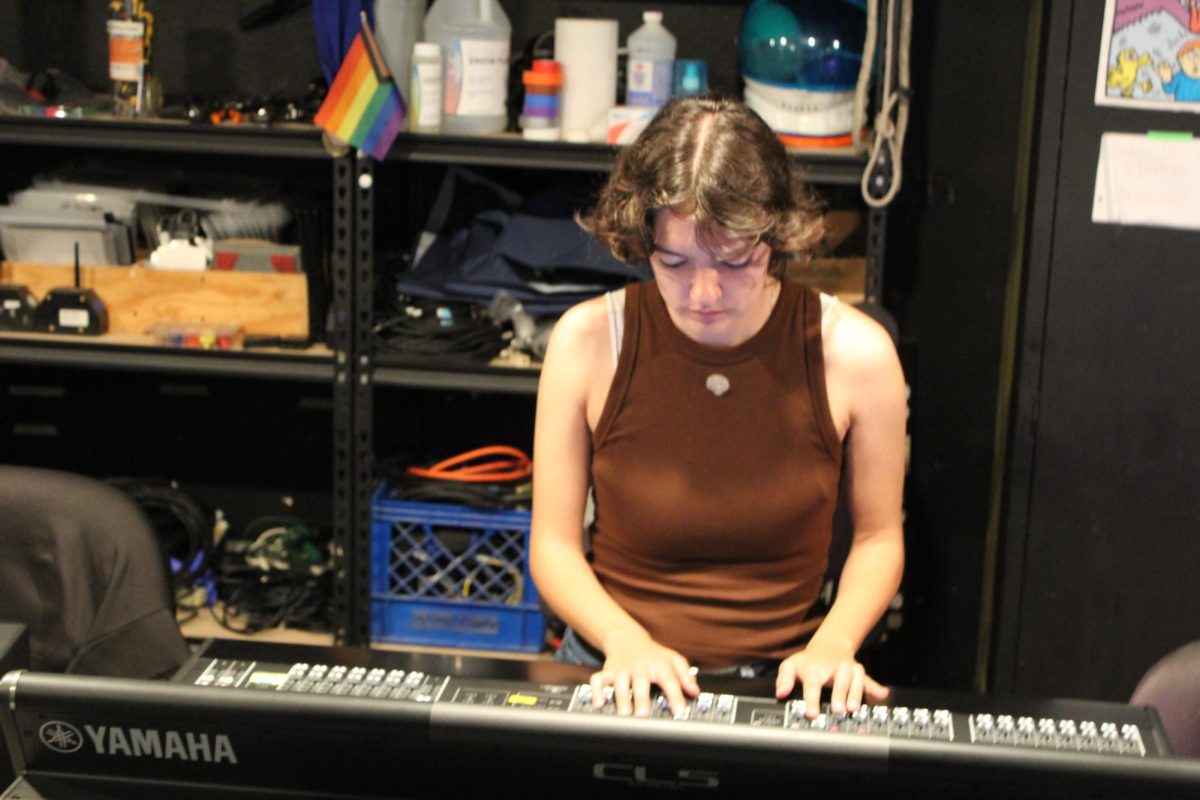When Ethan Olim (12) submitted his final college application last year, he was filled with uncertainty. In the following months, he’d spend countless late nights with friends talking about how disconcerting it was to have no idea where they’d be in the fall. Most admissions decisions would come in the month of March. Then, Olim said, he thought he would have an idea of what his future would hold.
But when March came and Olim held an acceptance letter from Yale University in his hand, he still had no idea where he would be in the fall.
“March was supposed to bring certainty, but instead we [continue to] remain clueless as to what our fall will look like,” Olim said.
Olim said Yale has yet to finalize what the fall semester will look like, and won’t do so until early July. Based on this decision, Olim said that he will consider whether or not he will take a gap year. At this point, he is still on the fence.
William Zou (12) felt a similar unease. He was faced with the decision of choosing between University of Southern California (USC) and Brown University—a decision he said he would come to struggle with for weeks to come.
Zou has committed to USC as a Spring 2021 admit, which means that he wouldn’t matriculate in the fall. Instead, he would take a gap semester and begin enrollment in the spring.
According to Dr. Angel B. Pérez, an education administrator, teacher and student advocate at Trinity College, the prospect of an uncertain future is leading more and more current seniors to consider taking a gap year or a gap semester before beginning their first semester at college.
“This year, we predict to see more students taking gap years,” Pérez said. “For some, it’s because they don’t want to start their college experience online, others because they won’t be able to physically get to campus, and others because they are worried about another spread of the virus.”
Under normal circumstances, Zou said that he may have given more consideration to Brown. However, the pandemic and its effects have led him to consider new factors in making his decision.
“I’m choosing USC because of its proximity to my home and because I can take a gap semester,” he said. “Before all this, I would have seen that as a setback, but now it’s a plus. Starting in the spring would give me so much more certainty about my future, and being closer to home seems more important now than before.”
In a study conducted by Art & Science Group LLC, 35 percent of the 1,171 students polled in March said they would take a gap year. That amount subsided to 16 percent in April. However, this is still an increase from last year, where fewer than three percent of first-year students took a gap year before matriculation. This year, Pérez said that he’s witnessed many students requesting to take gap semesters.
“Some of them are international students who worry that borders will not be open, and others just want more time to let the pandemic pass before they start their college experience,” he said.
Pre-pandemic, Olim said he hadn’t seriously considered a gap year, but did see it as a valuable chance to travel and take a year for oneself.
In the midst of the pandemic, Olim began to look at the opportunity of a gap year differently, not only seeing it as a formative experience to grow as an individual, but as a way to sit out the effects of COVID-19. The hope, he said, is that he will return to a more traditional first-year experience.
“Other than the ability to enjoy an entirely conventional college experience, I would hope to come out of a gap year as a more fully-formed version of myself,” Olim said. “That’s something I see as essential before heading off into the world.”
Pérez said that, now more than ever, a gap year can benefit students greatly.
“Some students need a break between high school and college,” he said. “I have felt that gap year students are rested, energized, and prepared for college.”
Time spent in quarantine has allowed Olim not only to consider the prospect of a gap year, but to consider what he would do in that span.
“When at home, I would work on my pipe dream of conquering the entire AP Lit book list, get back into volunteering at the public library, and take the time to step back from constant performances and work on my trumpet playing with a long-term mindset,” Olim said.
With his time, Zou said he plans to take classes through community college and visit his sister who lives in Portland, Oregon.
“USC actually encourages its Spring 2021 admits to take general education classes during their gap semester, which would be more cost-effective.” he said. “I’m definitely going to visit [my sister] a few times over the summer and fall.”
According to Pérez, colleges will be much more flexible in allowing students to delay their enrollment this year.
“Colleges and universities are going to have fewer students, but personally, I’d rather a student tell me that they’re going to defer or take a gap year because I still want them to be on my campus, even if it takes a year,” he said.
The value, however, of a traditional first-year experience, is immeasurable to both Zou and Olim.
Zou said that the idea of having an online first semester would feel, to him, watered down.
“My freshman year in high school was really important to the rest of my time at Westview, so I know how important my first year at USC is,” Zou said. “Not being able to talk to your professors, spend time with your roommates, not be social—it just isn’t the same.”
The conversations that Olim has engaged in at Westview have been incredibly enlightening and valuable to him, he said.
“I remember a story from [my English teacher] Bob McHeffey about his late night conversations in dorms at Stanford—wandering through the halls, having unplanned, meandering chats,” Olim said. “[Those conversations] are one of the things I’m looking forward to most in college. But with classes online or us on campus but unable to mingle, these conversations can’t happen.”
For Zou, a gap semester means gaining back control of his timeline, he said, allowing himself time to catch up on the things he missed and the people he never got to see.
“If I delay my enrollment in the spring, I have time to catch up mentally,” Zou said. “If I throw myself into fall semester, I’ll feel like I’m continuing on this trend of uncertainty. In terms of mental health, too, I’m not sure how I’ll handle it without the proper environment.”
Taking a gap year wouldn’t be a way for Olim to catch up on lost time, but it would allow him to make the best of the current moment.
“Time usually runs in a continuum, but once in a while, it comes in discrete blocks,” he said. “This pandemic is one of those blocks, imposing itself over what should have been the best parts of our continuum. Nothing squandered would be restored with a gap year, but it would allow me to make the best of this block that isn’t going away.”



